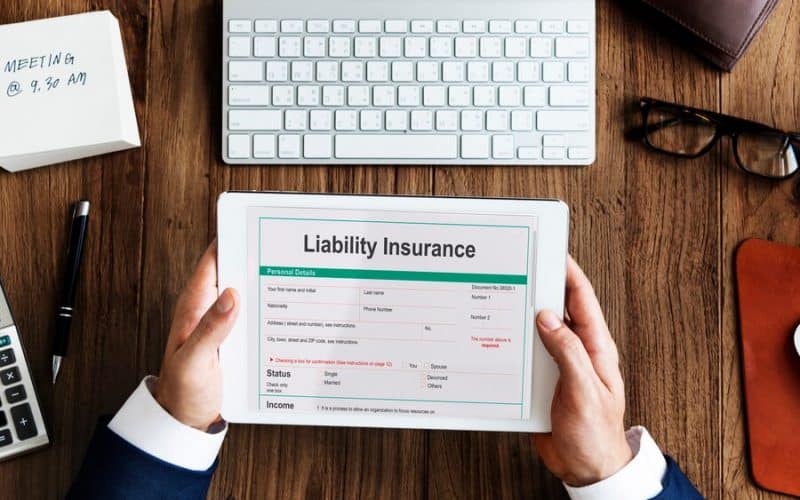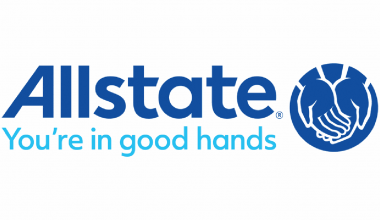Third Party Liability Insurance is an essential precaution for protecting your financial interests and limiting any liabilities. Understanding the importance of Third Party Liability Insurance is critical whether you are a business owner, a professional service provider, or an individual. In this detailed guide, we will delve into the intricacies of this Third Party Liability insurance coverage, investigating its definition, many types such as General Insurance, benefits, and the best solutions on the market. So, let us go on this knowledge trip and strengthen our grasp about Third Party Liability Insurance.
What is Third Party Liability Insurance?
Third-party liability Insurance, sometimes known as TPL or just liability insurance, is a type of coverage that protects you financially against third-party claims for bodily injury, property damage, or other damages caused by your conduct or negligence. It works as a safety net, protecting you from potentially disastrous legal and financial consequences.
Accidents and unplanned incidents can happen at any time, resulting in financial responsibilities that can cripple individuals, businesses, or professionals. Third Party Liability Insurance transfers the risk of such obligations to the insurance provider, ensuring that you are financially covered and can continue your operations without fear of major damages.
Third-Party Liability Insurance Types
The following are the several types of Third-Party Liability Insurance:
#1. General Third-Party Liability Insurance:
General Third Party Liability Insurance is a comprehensive type of coverage that protects individuals and corporations from bodily injury, property damage, or personal injury claims caused by their acts or products. It addresses a wide range of issues, such as slip-and-fall accidents, product faults, and advertising liability.
#2. Professional Liability Insurance:
Professional Liability Insurance, commonly known as Errors and Omissions (E&O) Insurance, is developed expressly for professionals who give advice or deliver services. It protects against lawsuits stemming from errors, omissions, or negligence in the performance of their professional obligations. This type of coverage can be extremely beneficial to professionals such as doctors, lawyers, architects, and consultants.
#3. Product Liability Insurance:
Product Liability Insurance is essential for companies that manufacture, distribute, or sell products. It protects you from claims resulting from injuries or damages caused by defective or hazardous products. Product Liability Insurance assists in reducing the financial risks connected with product-related lawsuits and recalls.
#4. Directors and Officers Liability Insurance:
Directors and Officers Liability Insurance (D&O Insurance) is designed for corporate executives and non-profit board members. It shields them from personal liability for alleged wrongful acts or errors in their leadership roles. D&O insurance protects directors and officers by allowing them to make choices without fear of personal financial ruin.
#5. Cyber Liability Insurance:
Cyber Liability Insurance has become critical coverage for businesses in our increasingly linked environment. It guards against financial losses caused by cyber-attacks, data breaches, and other cyber events. This insurance helps to cover the costs of data recovery, notification, and credit monitoring for affected individuals, as well as potential legal claims.
General Third-Party Liability Insurance
General Third Party Liability Insurance is an important type of coverage that protects individuals and businesses from third-party claims for bodily injury, property damage, or personal injury caused by their acts or products. It is a comprehensive insurance policy that assists in mitigating the financial risks and responsibilities related to accidents or incidents that may occur in a variety of contexts.
This type of insurance is required for all organizations, as well as individuals who want to secure their assets. It serves as a safety net, protecting policyholders from potential litigation, legal fees, and major financial losses caused by third-party claims.
The scope of General Third Party Liability Insurance is broad. For example, if you run a business, it can cover you if a customer slips and falls on your property, resulting in injuries. Similarly, if you inadvertently damage someone else’s property while providing professional services, this type of insurance might help pay the expenses of repairs or replacements.
One of the primary benefits of General Third Party Liability Insurance is that it covers more than just immediate cash damages. It also covers legal defense costs, which can be significant, particularly if a lawsuit is involved. Typically, the insurance company selects legal specialists to represent the policyholder’s interests and conduct the legal processes, relieving the burden of seeking and paying for legal representation.
Furthermore, this type of insurance provides individuals and organizations with peace of mind by allowing them to focus on their primary activities without continually worrying about the potential financial repercussions of an accident or disaster.
Benefits of Third-Party Liability Insurance
#1. Financial Protection:
The financial protection provided by Third Party Liability Insurance is one of its key advantages. In the event of a covered claim, the insurance provider bears the financial burden up to the policy limits, including legal defense expenses and potential settlements or judgments. This safeguard ensures that your personal or corporate valuables are safe.
#2. Peace of Mind:
Third Party Liability Insurance gives you peace of mind by ensuring that you are fully insured against third-party claims. It enables you to concentrate on your personal or professional pursuits without continuously worrying about the financial consequences of an unforeseen occurrence. In today’s litigious environment, this peace of mind is priceless.
#3. Legal Defense Coverage:
Legal defense costs are typically covered by most Third Party Liability Insurance policies. If you file a claim, the insurance company will select legal counsel to protect your interests and handle the legal proceedings. This coverage can help to lessen the financial stress of engaging an attorney and navigating the legal system’s intricacies.
#4. Reputation Protection:
Regardless of its merit, a third-party claim can ruin your reputation. You can defend your reputation and safeguard your brand image with Third Party Liability Insurance. The insurance provider’s skills in claim management and public relations might assist in mitigating the negative impact on your personal or corporate reputation.
#5.Contractual Requirements Compliance:
Third Party Liability Insurance is frequently required by contract while engaging in specified activities or working with specific clients. Having this coverage guarantees that you meet your contractual responsibilities, allowing you to gain lucrative contracts and partnerships and providing you with a market advantage.
Best Third-Party Liability Insurance Options
#1. Research and Comparison:
Thorough study and comparison are essential when choosing the best Third Party Liability Insurance. It is critical to analyze insurance carriers’ reputations and financial stability, as well as the exact coverage and limits provided. Reading customer reviews and obtaining suggestions from reliable sites can also provide useful information.
#2. Tailored Policies for Specific Needs:
Individuals, professions, and businesses all have different insurance requirements. It is critical to select an insurance provider that provides customized policies to meet your individual needs. Look for carriers who specialize in the type of coverage you require, whether it’s general liability, professional liability, product liability, or something else.
#3. Consider Coverage Limits and Deductibles:
Examine the coverage limitations and deductibles associated with each policy when comparing Third Party Liability Insurance choices. When choosing the deductible amount, make sure that the restrictions sufficiently safeguard your financial interests, and take your risk tolerance into account. Strike a balance between cost-effectiveness and comprehensive coverage.
#4. Evaluate Additional Benefits and Services:
Aside from fundamental coverage, some insurance companies provide additional perks and services that can increase the value of your policy. These may include risk management tools, legal counsel, or access to a network of vetted specialists. Consider these extras when comparing different insurance options.
#5. Seek Professional Advice:
It is best to speak with an insurance broker or specialist if you are confused about the best Third Party Liability Insurance choice for your individual needs. They may assess your risk profile, make personalized recommendations, and assist you in navigating the insurance landscape’s intricacies.
Is there a difference between liability insurance and a third-party liability?
Yes, there is a distinction between liability insurance and third-party liability insurance. Third-party liability insurance is part of a broader category of insurance coverage known as liability insurance. Third-party liability specifically relates to the legal responsibility to compensate third parties for damages or losses and is a component of liability insurance.
Do I need third-party liability?
Individuals and corporations should both have third-party liability insurance. Here are some of the reasons you could require third-party liability insurance:
- Protection against legal claims
- Legal Requirements
- Peace of mind
- Business protection
It is critical to evaluate your individual circumstances, taking into account the nature of your activity, potential dangers, and regulatory requirements in your area. Consultation with an insurance specialist or broker can assist you in determining the proper level of coverage and unique insurance requirements for your situation.
What is an example of a third-party claim?
A third-party claim occurs when someone is hurt as a result of the conduct or negligence of another party and seeks recompense for their injuries and damages. Consider the following scenario:
Assume you own a small firm that offers home improvement services. One of your employees inadvertently leaves a tool on the floor while working on a client’s property, causing the client’s guest to tumble and sustain injuries. In this situation, the injured guest can file a third-party claim against your company, demanding reimbursement for medical bills, pain and suffering, lost wages, and other damages incurred as a result of the occurrence. As the owner of the company, you would rely on your third-party liability insurance to cover the costs of the claim, including legal defense if necessary, according to the policy limits.
This example shows how a third-party claim might emerge when someone who is not directly involved in a contractual relationship with you or your company suffers harm or loss as a result of your actions, products, or services. Third-party liability insurance provides financial protection and coverage for such claims, allowing you to meet your legal commitments while also protecting your assets.
What is the difference between full coverage and third-party insurance?
The distinction between full coverage and third-party insurance is based on the scope of coverage given and the types of risks they protect against. Full coverage insurance provides a broader variety of protection, including liability coverage for third-party claims as well as coverage for damage to your car or property. Third-party insurance, on the other hand, particularly protects you from legal duties to third parties while not covering your damages or losses. The decision between full coverage and third-party insurance is influenced by your personal circumstances, risk tolerance, and regulatory obligations.
How do you handle third-party claims?
Here is a general overview of how third-party claims are typically handled:
- Notification: As the policyholder, it is your responsibility to promptly notify your insurance provider about any incident that could give rise to a third-party claim.
- Claim Investigation: Once notified, the insurance company will initiate an investigation into the claim.
- Legal Defense: If a lawsuit is filed against you by a third party, your insurance company may provide legal defense on your behalf.
- Settlement Negotiation: The insurance company will work with the third party or their legal representatives to negotiate a settlement, if appropriate.
- Claim Resolution: Once a settlement is reached or a judgment is made, the insurance company will make payment to the third party, up to the policy limits.
It should be noted that the specific method and procedures may differ based on the insurance provider, the nature of the claim, and the policy terms and conditions.
What is one example of a third party?
In a real estate transaction, an example of a third party is the escrow company; the escrow party works as a neutral agent by collecting the documents and money that the buyer and seller exchange when the transaction is completed.
How do I know if I have third-party insurance?
To determine if you have third-party insurance, you can follow these steps:
- Review your insurance policy documents
- Contact your insurance provider
- Check legal requirements
Remember that insurance policies can vary, and the coverage provided depends on the specific terms and conditions of your policy.
Conclusion
Third-Party Liability Insurance is a financial safety net in a world full of uncertainty and potential liabilities. You may make informed judgments to protect your personal, professional, or corporate interests by learning its definition, examining the numerous varieties, and recognizing the benefits it provides. Remember to do extensive research, compare possibilities, and select a policy that meets your personal needs and risk profile. You can have peace of mind knowing that you are protected against potential third-party claims and can continue pursuing your goals with confidence if you have the correct Third Party Liability Insurance in place.
- State Farm Insurance Claim Time Limit: Explained!
- Products Liability Insurance: Definition, Coverage & Who Needs It
- HOW TO GET BUSINESS INSURANCE: Easy Guide 2023
- Product Liability Insurance: Everything You Need to Know
- Contractual Liability Insurance Cost: Meaning, Coverage & Cost
- RENTAL CAR INSURANCE: Do You Need It & How to Get It






